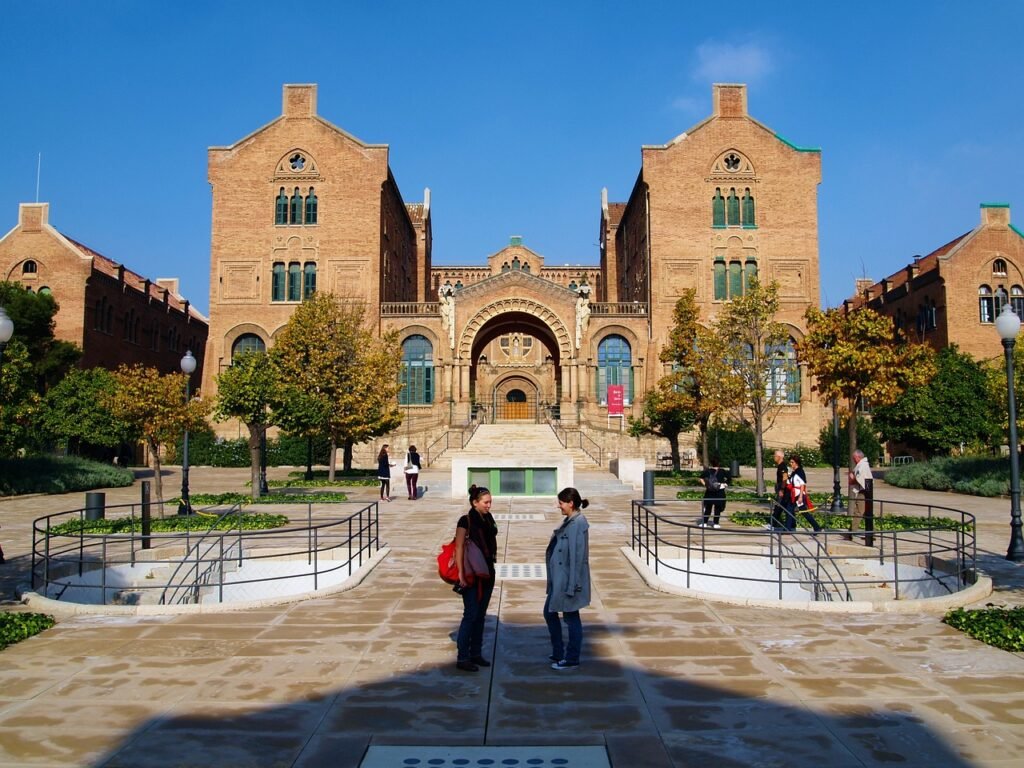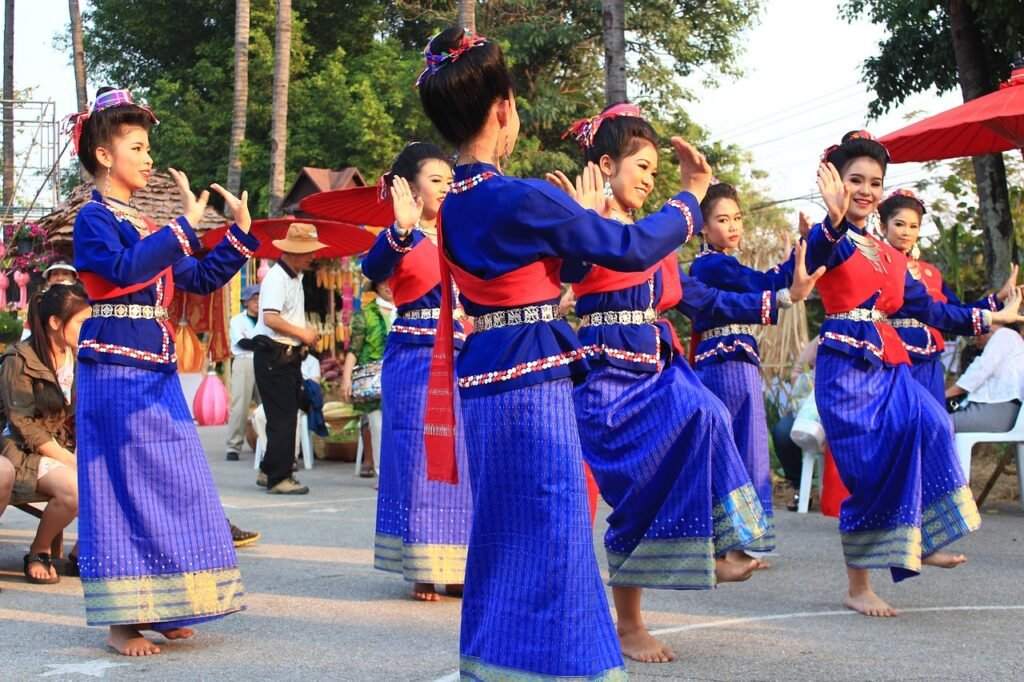
Intro
The allure of Thailand’s vibrant culture, breathtaking landscapes, and the promise of an adventure has many travelers considering more than just a fleeting visit.
For those enticed by the idea of extending their stay through employment, there are numerous opportunities awaiting.
From teaching English to diving into the digital nomad lifestyle, jobs in Thailand for foreigners are abundant.
But where to begin? This comprehensive guide will walk you through the various job options, making your dream of working in the Land of Smiles a tangible reality.
Teaching Jobs in Thailand – A Gateway for English Speakers

For English speakers venturing into Thailand with aspirations of working, teaching positions emerge as a premier choice.
The nation’s educational system has an ongoing requirement for English language instructors, providing a spectrum of opportunities that span from primary schools to prestigious universities.
These roles often necessitate a Bachelor’s degree and a TEFL (Teaching English as a Foreign Language) certification, setting a clear path for those who qualify.
The demand for English education extends beyond formal institutions, encompassing private language schools and tutoring services that cater to both children and adults.
This breadth of options means that aspiring teachers can find roles that align with their teaching style and preferences, whether in bustling Bangkok or the tranquil countryside.
The appeal of teaching in Thailand isn’t just in the availability of positions but also in the potential for cultural exchange and personal growth.
Instructors often find themselves deeply immersed in the local community, gaining unique insights into Thai culture and forming lasting bonds with students and fellow teachers.
The experience is as much about imparting knowledge as it is about learning from the rich tapestry of experiences Thailand has to offer.
Moreover, the teaching landscape in Thailand is continually evolving, with a growing emphasis on digital literacy and innovative teaching methodologies.
This dynamic environment presents an exciting challenge for educators to develop their skills further and contribute to the advancement of English language learning in the country.
Hospitality and Tourism – Thriving Sectors for Foreigners

Thailand’s flourishing hospitality and tourism sectors offer a wealth of employment opportunities for foreigners seeking to immerse themselves in this dynamic industry.
The country’s reputation as a premier tourist destination means there is a constant demand for skilled workers in various roles within hotels, resorts, and other tourist accommodations.
Positions range from front-line staff such as receptionists and concierge services to more specialized roles including event management and culinary arts.
Foreign workers with a flair for hospitality or a background in tourism management will find that their skills are highly valued, especially if they possess language proficiency in English and other major languages.
This linguistic ability enables them to effectively communicate with a diverse international clientele, enhancing the guest experience and contributing to the success of their employers.
The vibrant nightlife and rich cultural experiences offered by Thailand also create openings in bars, clubs, and entertainment venues.
These establishments often seek foreign employees who can bring a unique perspective to event planning and customer service, connecting more authentically with tourists from around the globe.
Moreover, travel agencies and tour companies in Thailand are continuously on the lookout for foreign employees who can design and lead tours that cater to specific interests and languages of international travelers.
roles not only require organizational skills and local knowledge but also the ability to share Thailand’s culture and landscapes in an engaging and informative manner.
For individuals passionate about making every traveler’s experience unforgettable, Thailand’s hospitality and tourism sectors provide a promising platform to build a fulfilling career.
Digital Nomadism – Work in Thailand with a Global Reach

The concept of digital nomadism has seen a significant surge in recent years, and Thailand has emerged as a haven for those seeking to combine work and wanderlust.
With its relatively low cost of living, high-speed internet connectivity, and an array of co-working spaces, the country is an ideal locale for remote professionals.
Digital nomads in Thailand enjoy the flexibility of working from picturesque locations, be it a beachfront café in Koh Samui or a bustling co-working space in the heart of Bangkok.
The jobs that cater well to this lifestyle span across various sectors, including tech, creative industries, and online education.
For instance, software developers, content creators, SEO specialists, and online tutors find Thailand to be a conducive environment for both productivity and leisure.
The country’s scenic beauty and cultural richness provide endless inspiration for creative minds, while the tech-savvy infrastructure supports operational needs.
Cities like Chiang Mai have gained popularity among the digital nomad community for their affordable living, friendly locals, and vibrant expat scene.
Here, one can seamlessly transition between work, networking events, and exploration, making every day a unique experience.
Meanwhile, Bangkok offers a fast-paced, metropolitan setting with endless networking opportunities and a diverse array of entertainment options.
For those contemplating a move to work in Thailand under the digital nomad model, it’s crucial to research visa requirements and potential co-working spaces ahead of time.
Engaging with online forums and communities can also provide invaluable insights and support from those who have already made the leap.
Embracing this lifestyle opens up a world of global opportunities, all while enjoying the enchanting backdrop of Thailand.
Internships and Volunteer Work – Building Skills and Giving Back

Venturing into the heart of Thailand’s professional landscape, internships and volunteer opportunities stand as pivotal stepping stones for those at the outset of their careers or individuals seeking to broaden their horizons with international experience.
In a country as culturally rich and diverse as Thailand, these positions are not merely jobs but a gateway to personal and professional development.
Organizations across a variety of sectors, including non-governmental organizations (NGOs), startups, and social enterprises, eagerly open their doors to enthusiastic individuals ready to contribute their skills and learn in a dynamic environment.
While compensation in these roles might be minimal or sometimes non-existent, the real value lies in the unique experiences gained and the networks established.
Engaging in internship or volunteer work in Thailand offers a deep dive into the local community and culture, allowing participants to work closely with Thais and fellow expatriates from around the globe.
This immersive experience is unparalleled, offering insights into Thailand’s social issues, business practices, and day-to-day life that are rarely visible to the casual visitor.
Moreover, these opportunities often provide a platform for meaningful contributions to society, whether through educational initiatives, environmental conservation efforts, or community development projects.
The impact of such work extends far beyond the duration of one’s stay, fostering a sense of global citizenship and a deep connection to the land and its people.
For individuals eager to embrace a challenge and make a difference, Thailand’s landscape of internships and volunteer work presents a rich tapestry of possibilities.
Embarking on such a journey not only enhances one’s resume but also enriches the soul, paving the way for a future of limitless potential both in Thailand and beyond.
The Role of the US Embassy and Other International Bodies

For Americans looking to explore jobs in Thailand, the US embassy and various international bodies provide a pathway to engaging and impactful careers abroad.
These organizations are often on the lookout for skilled professionals to fill roles in administration, development projects, and other sectors that necessitate a comprehensive understanding of both American and Thai cultures.
Serving in these capacities not only allows individuals to contribute to meaningful work but also to immerse themselves in Thailand’s rich cultural landscape.
Roles within these entities can range from education and health initiatives to environmental and economic development programs.
Each position offers a unique perspective on the collaboration between the United States and Thailand, fostering mutual understanding and benefiting communities.
The work done through the US embassy and international organizations is vital, contributing to bilateral relations and global diplomacy, thus offering a rewarding career for those passionate about making a difference on an international scale.
Navigating the application process for these positions requires diligence, as many require security clearances, specialized qualifications, and sometimes, knowledge of the Thai language.
Networking with professionals already working within these organizations can provide valuable insights and increase one’s chances of securing a position.
Additionally, staying informed about open positions through official embassy or organization websites is crucial for those aspiring to enter this field.
Working for the US embassy or an international body not only enhances one’s professional growth but also offers a unique opportunity to live and work in one of the most culturally rich countries in the world.
Breaking into BD Careers and Other Industries

The vibrant economy of Thailand, particularly in Bangkok, is ripe with opportunities for those specializing in business development (BD), finance, and technology sectors.
The country’s push towards innovation and economic expansion has created a fertile ground for BD careers and roles in burgeoning tech startups and established multinational corporations.
These positions not only cater to the local market’s needs but also aim to position Thailand as a hub in the ASEAN region.
To tap into these opportunities, proactive networking is key. Engaging with local and expat business communities through industry events, seminars, and online platforms can open doors to potential job offers.
Thailand’s business landscape is deeply rooted in relationships and personal connections, making networking an invaluable tool for those looking to break into these industries.
Leveraging online job platforms is another effective strategy for uncovering job opportunities in Bangkok and beyond.
Many companies actively seek international talent to bring diverse perspectives and skills to their teams, often posting openings on both global and local job search websites.
A nuanced understanding of Thailand’s business etiquette and culture can significantly enhance one’s appeal to potential employers.
Familiarity with the local language, while not always necessary, can differentiate candidates in a competitive job market.
Furthermore, demonstrating adaptability and a genuine interest in contributing to Thailand’s economic growth can make a compelling case for one’s candidacy in these fields.
Navigating this dynamic job market requires a blend of strategic networking, cultural acumen, and a proactive approach to job searching.
For those with the right skill set and determination, Thailand offers a landscape filled with potential for career growth and professional development.
Navigating Work Permits and Visas – What You Need to Know

Embarking on a career in Thailand requires not only enthusiasm and preparation but also a thorough understanding of the legal aspects of employment for foreigners.
Central to this is obtaining the correct work permit and visa, a process that underscores the commitment of both the employee and the employer to adhere to Thai laws.
The Thai government offers several types of visas, each tailored to different purposes and durations of stay.
For employment, the most common type is the Non-Immigrant Visa “B”, which is specifically for those intending to work or conduct business in Thailand.
To accompany this, a work permit is a legal necessity, acting as authorization for a foreigner to work within the country.
This document details the nature of the employment, the employer, and the location of work.
Initiating the process typically requires a job offer from a Thai employer, who will often navigate the initial stages of the application on behalf of the prospective employee.
The documentation needed often includes, but is not limited to, a valid passport, health certificates, and proof of employment qualifications.
The complexity of this process underscores the importance of employers who are well-versed in the legalities involved and willing to facilitate the entry of foreign professionals into the Thai workforce.
Throughout this process, it’s crucial to stay informed about the specific requirements and deadlines associated with your visa and work permit applications.
Regulations can change, and being proactive about compliance ensures a smoother transition into your new role in Thailand, avoiding potential legal complications and ensuring your focus remains on your career journey and cultural immersion.
Embracing the Culture – Tips for a Smooth Transition to Working in Thailand

Transitioning to life in Thailand presents a unique set of challenges and opportunities, especially for those looking to work in this beautiful country.
Immersing yourself in the local culture is key to making the most of your experience. Start by learning some basic phrases in Thai.
Even a simple “hello” (sawasdee) or “thank you” (kop khun) can go a long way in showing respect for the local culture and making connections with Thai colleagues and neighbors.
Understanding Thailand’s rich tapestry of customs and traditions is also essential. For instance, always show respect towards images of the King and the royal family, a practice that is deeply ingrained in Thai society.
Be mindful of cultural practices such as removing your shoes before entering someone’s home or a temple, and be careful not to point your feet at people or objects, as feet are considered the lowest and dirtiest part of the body in Thai culture.
Navigating the workplace requires an appreciation of Thailand’s hierarchical social structure. Showing respect to supervisors and elders is crucial, and maintaining harmony and avoiding confrontation is preferred in the professional environment.
Embrace the Thai way of life by participating in local festivals, trying out traditional cuisine, and exploring the country.
These experiences not only enrich your stay but also deepen your understanding of Thailand beyond the workplace.
By approaching your new life in Thailand with an open heart and a willingness to learn, you’ll find yourself more than just working in another country; you’ll be living and thriving in a community that has much to offer.